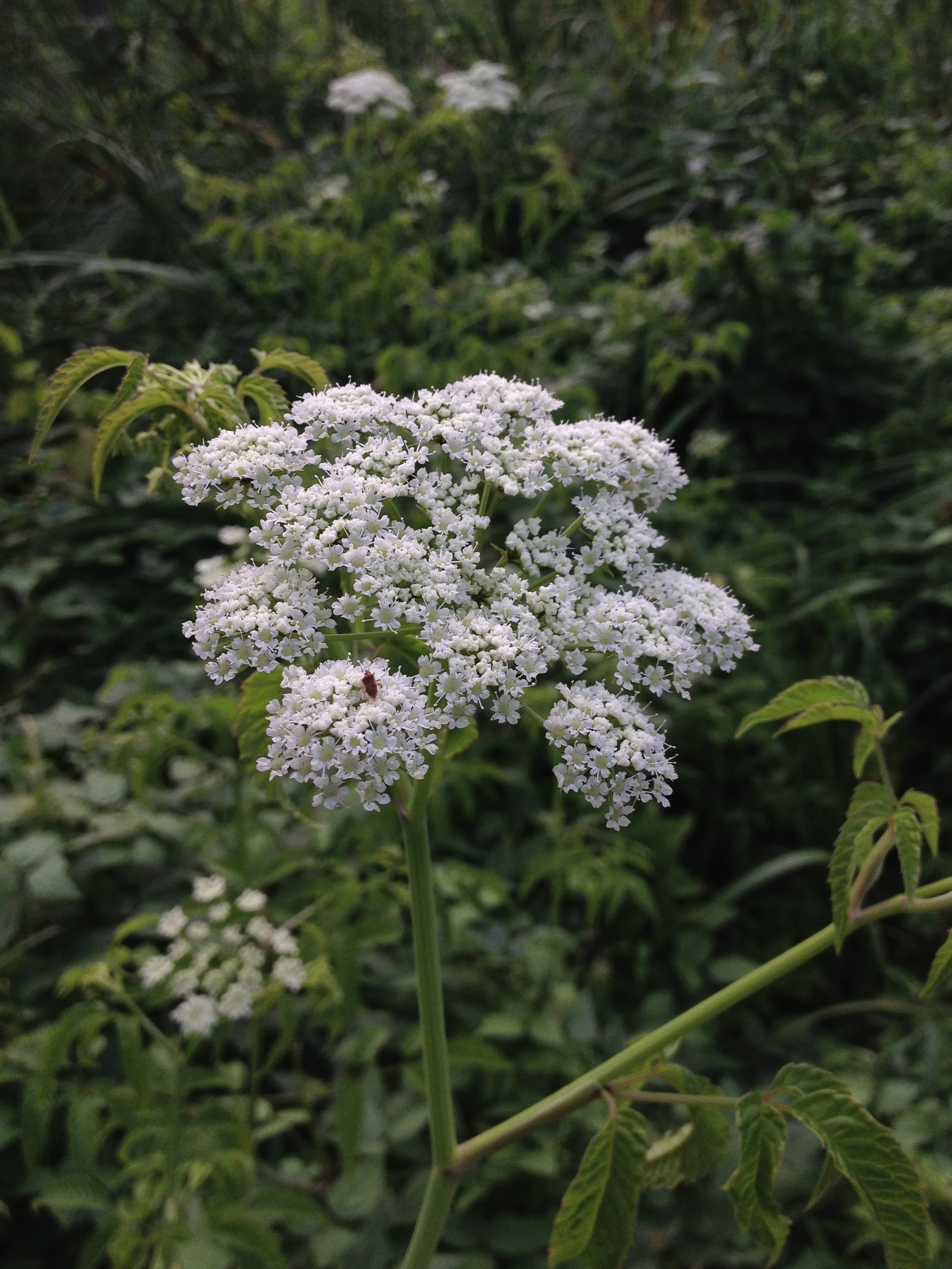Cicuta Magic: Protection, Banishment, and the Poisoned Threshold
It blooms like lace across wet meadows and riverbanks, delicate white umbels unfurling beneath the summer sun. To the untrained eye, water hemlock (Cicuta) seems almost innocent—dainty, wild, inviting. But beneath this gentle facade lies one of the deadliest plants in the world. Its roots hold cicutoxin, a venom that seizes the body in convulsions, a poison both feared and respected across centuries. In magic, this paradox becomes its power: Cicuta as a sentinel at the threshold, a plant whose beauty veils a ferocious spirit. To call on it is to summon protection through terror, banishment through poison, and transformation through peril.
Magical Uses of Cicuta
Cicuta is never touched, never brewed, never ingested. Its danger is absolute. But in symbolic or ceremonial workings, it stands as a fierce ally. The plant’s spiny reputation is channeled into:
Protection: Its spirit wards against malice and ill-intention, much like a guard dog whose bite is known but rarely tested.
Banishment: Cicuta’s venomous essence becomes the banisher of all that overstays its welcome—unwanted energies, lingering spirits, toxic influences.
Shadow Work: Some witches invoke its energy to confront inner poisons: lies, addictions, or fears that fester until uprooted.
By drawing its likeness or invoking its name, practitioners wield Cicuta as a symbolic sword, cutting away what is not welcome in their circle.
Ritual Traditions and Folklore
Though infamous for its lethal nature, water hemlock echoes through old traditions of poison plants used as magical guardians. In European folklore, plants like hemlock and wolfsbane grew at the edges of villages or crossroads, marking boundaries between safety and peril. Cicuta, in particular, embodies this role as a threshold spirit—an untouchable sentinel.
Ancient peoples may have observed its power firsthand: livestock and humans struck down by its roots after a single taste. In time, such observations forged its mythic role as both a warning and a ward. To carry its spirit into ritual is to stand at the liminal border where protection requires the presence of danger.
Blending Cicuta Symbolically with Herbs and Oils
Like other baneful plants, Cicuta is invoked only symbolically in blends. Practitioners may draw its umbels in sigil form and pair it with safer protective herbs such as sage, rue, or cedar in loose incense. For banishment, its essence may be called alongside black pepper, wormwood, or sulfur—ingredients that sting the senses and embody expulsion.
Cicuta can also be represented by an image, charm, or written invocation placed within ritual mixes. For instance, an incense cone for banishment may include frankincense, pine resin, and rue, with Cicuta’s spirit invoked through prayer or sigil rather than substance.
Practical “How-To” with Caution
Because Cicuta is lethal in even small doses, practitioners must never handle it directly in magical blends. Instead, use symbolic substitutes:
Draw its image on paper talismans to burn as part of protective smoke offerings.
Create altar charms with depictions of its umbrella-shaped flowers, standing as guardians.
Invoke its name during ritual banishment, calling its poisonous edge into the working.
For incense and resin blends, use traditional safe materials like frankincense, myrrh, or copal on charcoal disks in fireproof dishes. The smoke then carries the symbolic power of Cicuta without risk to health.
Metaphysical Effects: Cleansing by Fear and Fire
Cicuta’s metaphysical signature is sharp, uncompromising, and purgative. To call on its energy is to invite a violent cleansing, a spiritual exorcism that leaves no shadow clinging. It works not with gentle purification but with a brutal severing, stripping away what festers unseen.
In meditation, Cicuta’s presence can aid boundary work: the sense of an iron wall around the self, reinforced with poisonous barbs. For astral journeys, it acts as a forbidding guardian, ensuring only the strong of will may pass through. For those daring enough to embrace its lesson, Cicuta whispers of the necessity of endings—the truth that some poisons must be purged, and some doors slammed shut.
The Deadly Guardian
Cicuta is a flower of contradictions: lace-like yet lethal, delicate yet dominant, lovely yet loathed. Its spirit is not a comfort but a challenge, daring practitioners to reckon with their shadows and to defend their sacred space with unyielding ferocity. To work with Cicuta is to acknowledge that protection is sometimes dangerous, that banishment is sometimes cruel, and that beauty often masks a sharper truth.
This is the guardian at the water’s edge, the sentinel at the crossroads, the flower with fangs. Respect it, invoke it, and let its symbolic venom guard your threshold.
